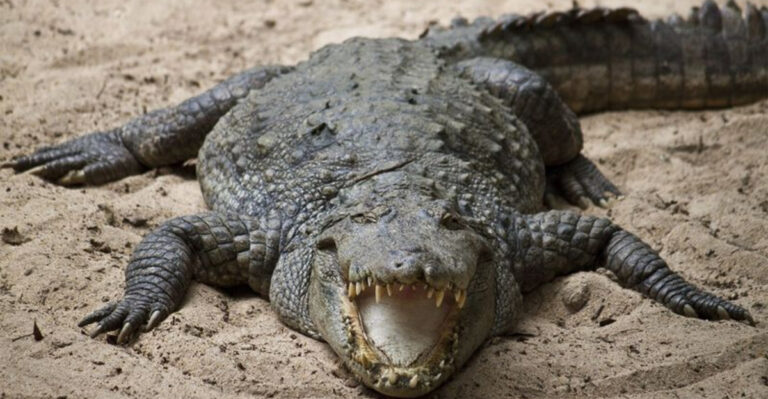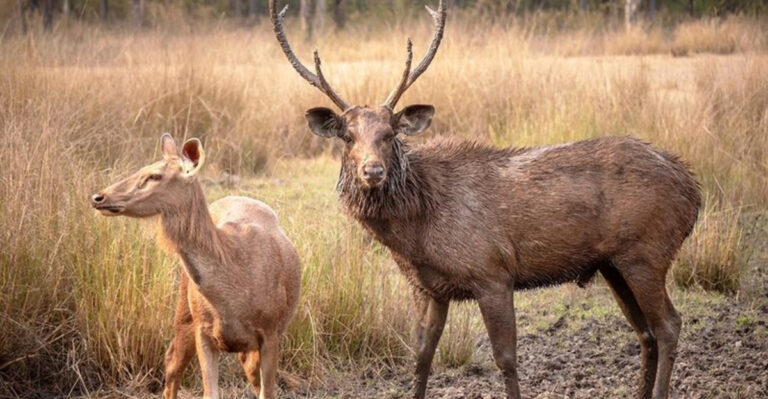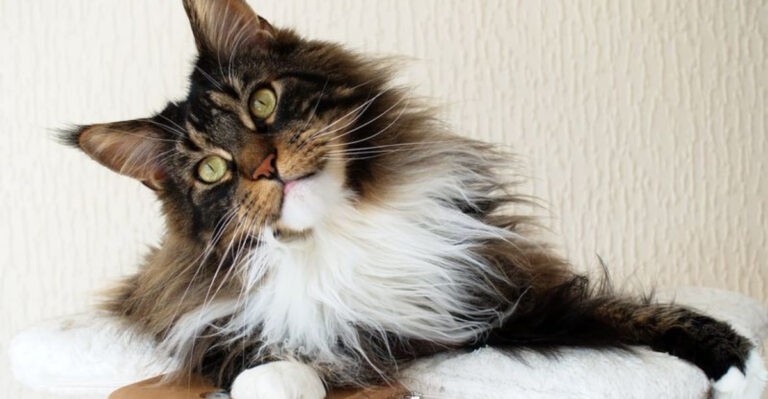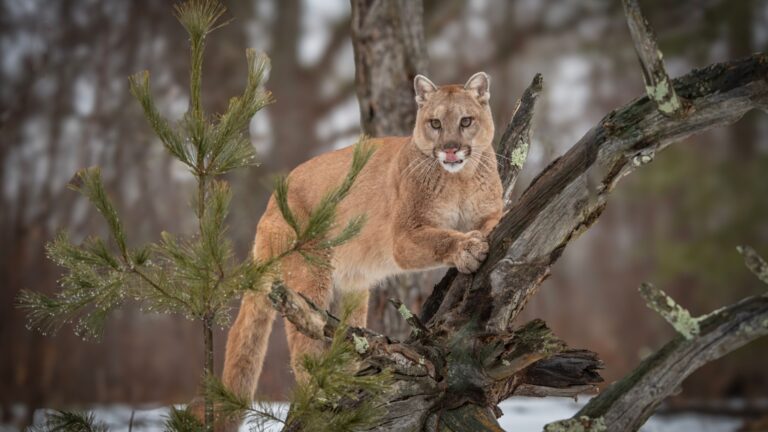8 Exotic Pets That Are Surprisingly Low Maintenance And 8 That Require Constant Attention
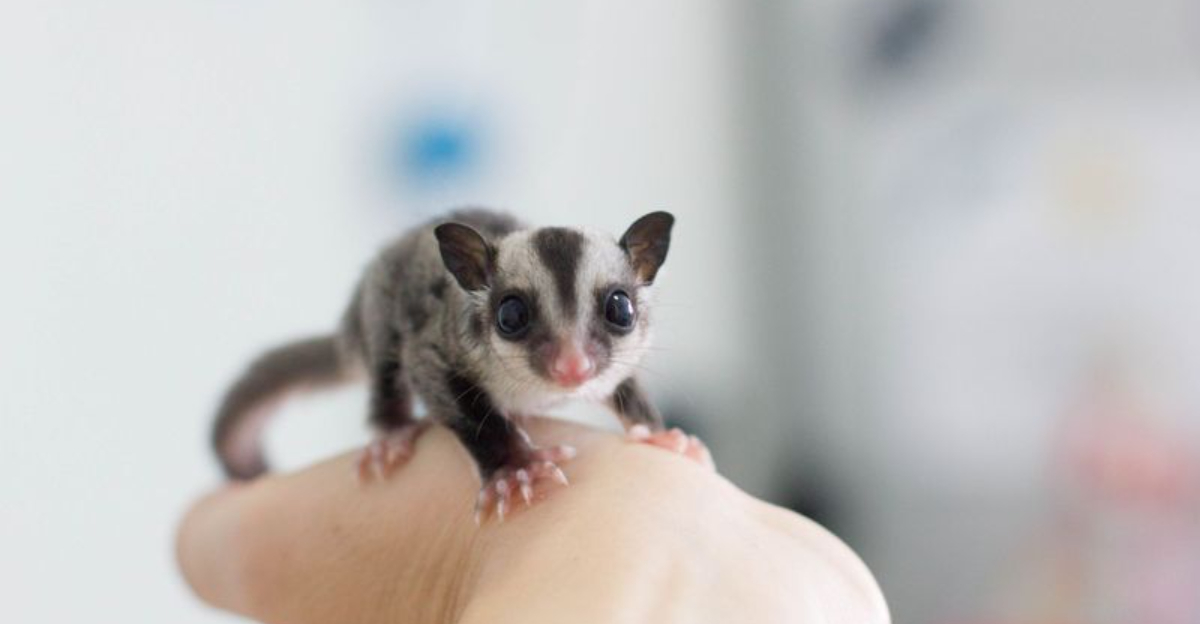
Exploring exotic pets can be fun, but understanding their care needs is crucial. While some exotic animals are easy to care for and can fit effortlessly into your life, others demand more attention and resources.
Let’s take a look at exotic pets, half of which are surprisingly low maintenance, and the other half require constant attention. This list will help you make an informed choice when considering an exotic pet.
1. Hedgehog
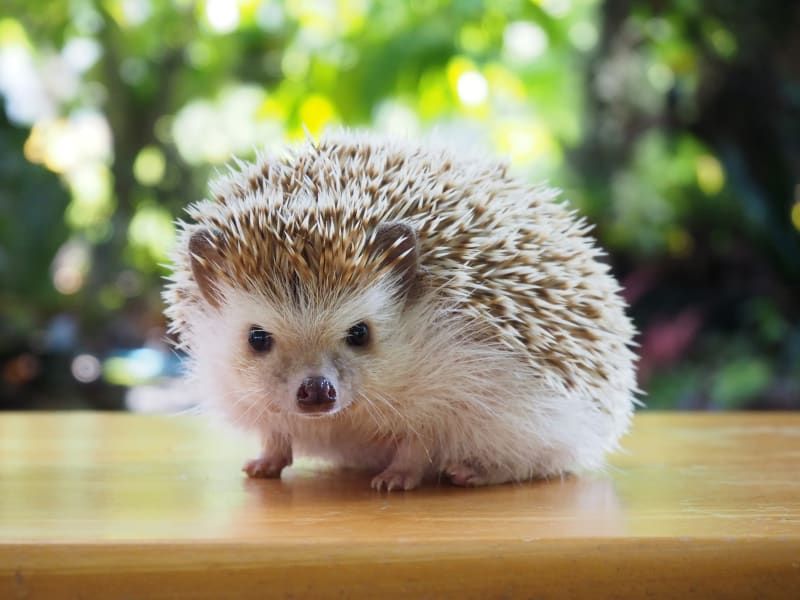
Hedgehogs, with their spiky exteriors and shy personalities, are nocturnal adventurers. They enjoy exploring mazes or tunnels, making them fun to watch! Their diet is simple: quality cat food with occasional treats like mealworms.
Hedgehogs need a clean, spacious cage and regular handling to stay friendly. These solitary creatures are low-maintenance but require a climate-controlled habitat.
2. Sugar Glider
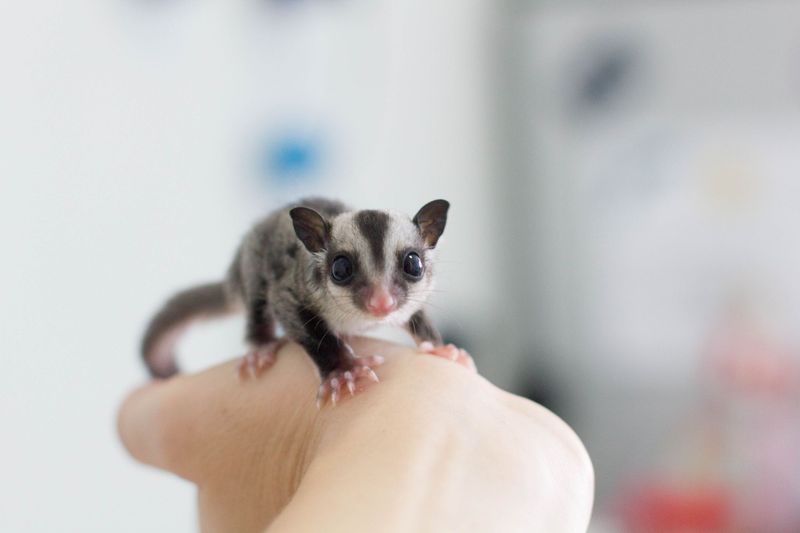
Sugar gliders are tiny marsupials with a penchant for gliding. These social butterflies thrive on companionship. They enjoy cozying up in your pocket during the day and exploring at night.
Ensure they have a companion to avoid loneliness. Their diet ranges from sweet fruits to insects, keeping it varied is key. They don’t demand a complex setup but do require regular social interaction.
3. Leopard Gecko
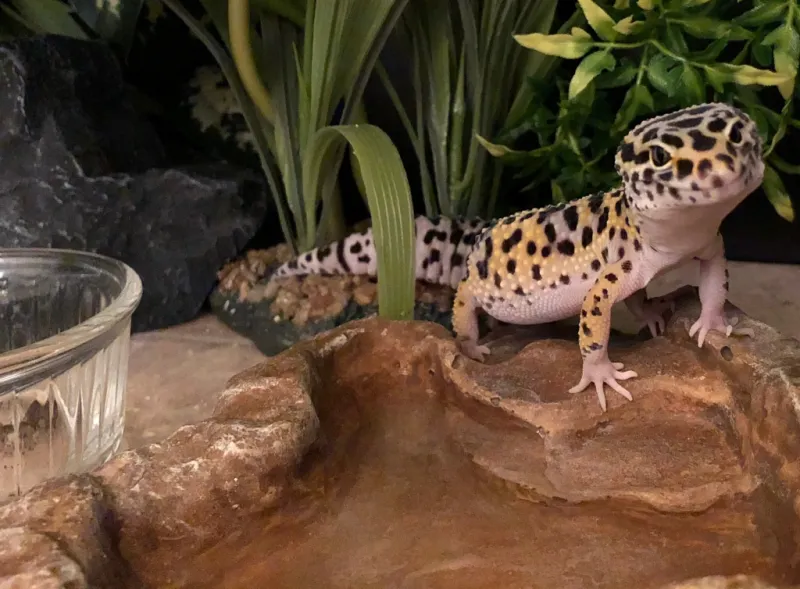
Leopard geckos are night dwellers with striking patterns and a gentle demeanor. These reptiles don’t need much—just a warm habitat and simple diet of insects.
They’re docile and easy to handle, making them great for beginners. Regular shedding requires a moist hide, and their tails store fat, which is handy! With minimal demands, they are a perfect low-maintenance exotic pet.
4. Betta Fish
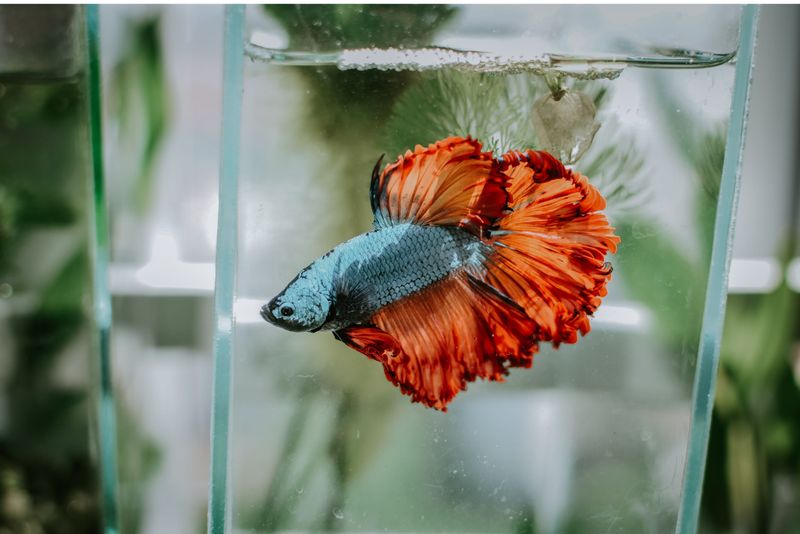
Betta fish, with their flowing fins and brilliant colors, add life to any room. They thrive solo in small tanks with warm, clean water.
Bettas are low-maintenance but require a gentle filter and regular feeding of high-quality pellets. Avoid overfeeding to keep them healthy. Watching them flare and display their colors is a joy, making them ideal for a serene aquatic pet option.
5. Corn Snake
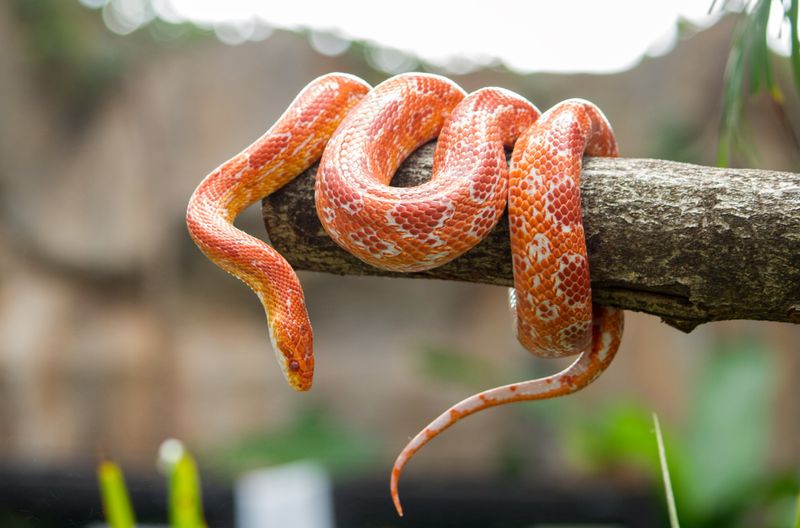
Corn snakes are sleek and colorful, known for their docile nature. These reptiles are adept escape artists, so a secure terrarium is essential.
They feed on pre-killed mice, making their dietary needs straightforward. With proper handling, they become quite tame. Corn snakes enjoy hiding and climbing, so enrich their environment. They’re low-maintenance, offering a rewarding reptile experience for owners.
6. Russian Tortoise
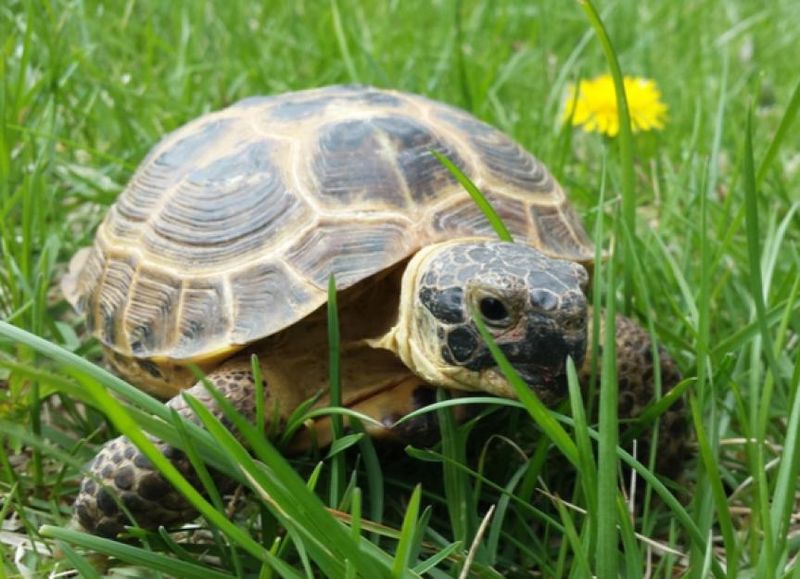
Russian tortoises are small, hardy reptiles with charming personalities. They enjoy munching on leafy greens and require a dry, spacious habitat with a basking light. These tortoises are low-maintenance, thriving in simple setups.
Regular interaction keeps them tame and engaged. Their long lifespan means they’re a long-term commitment, but their slow pace makes them an endearing companion.
7. Budgerigar
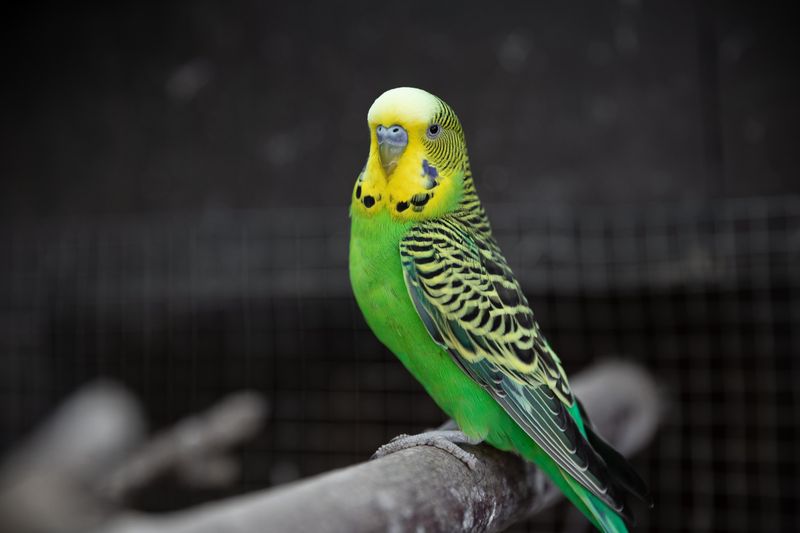
Budgerigars, or budgies, are small parrots with big personalities. They’re playful and social, enjoying mental stimulation through toys and interaction.
Budgies thrive on a diet of seeds, fruits, and vegetables. Regular cage cleaning and social time are essential to prevent boredom. Though they require some attention, their friendly nature and ability to mimic sounds make them delightful companions.
8. Emperor Scorpion
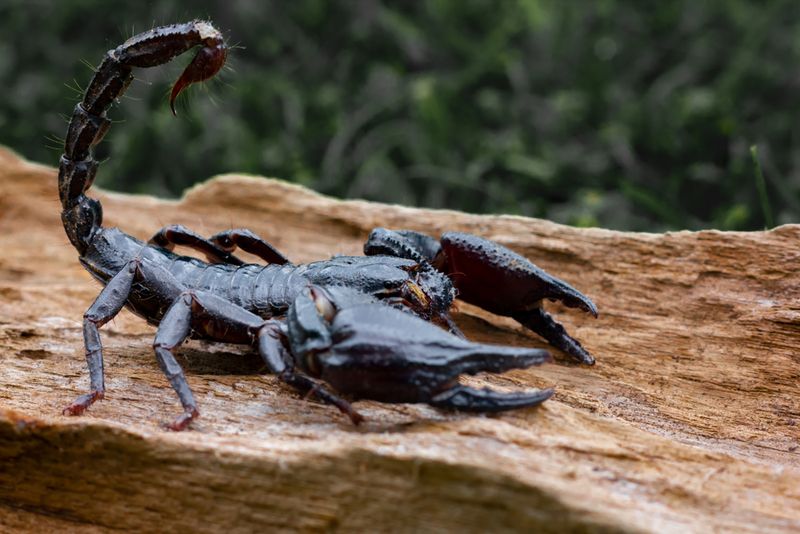
Emperor scorpions, with their intimidating appearance, are surprisingly easy to care for. They prefer dark, humid environments and are content with infrequent feeding.
These scorpions are more bark than bite, rarely using their venom. Handle with care, as they prefer solitude. Their simple needs, coupled with fascinating behavior, make them a low-maintenance choice for exotic pet enthusiasts.
9. Capuchin Monkey
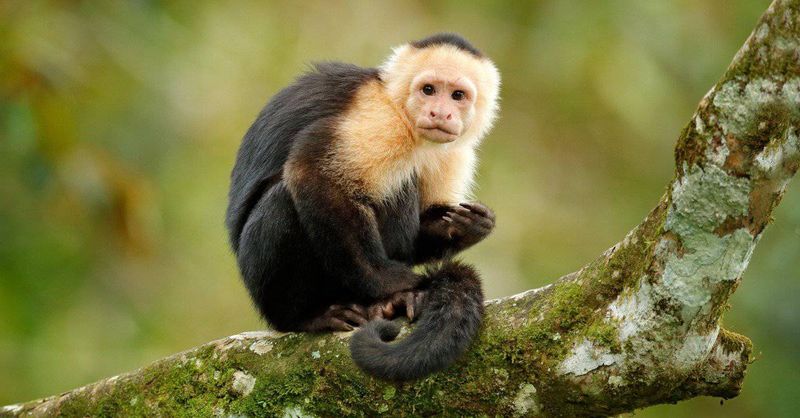
Capuchin monkeys are incredibly intelligent and social creatures. Their curious nature requires constant engagement and a stimulating environment. These primates thrive on a diverse diet, including fruits and insects.
Daily interaction is vital, as they form strong bonds with their owners. While rewarding, they demand a significant time commitment and proper socialization to prevent boredom and behavioral issues.
10. Fennec Fox
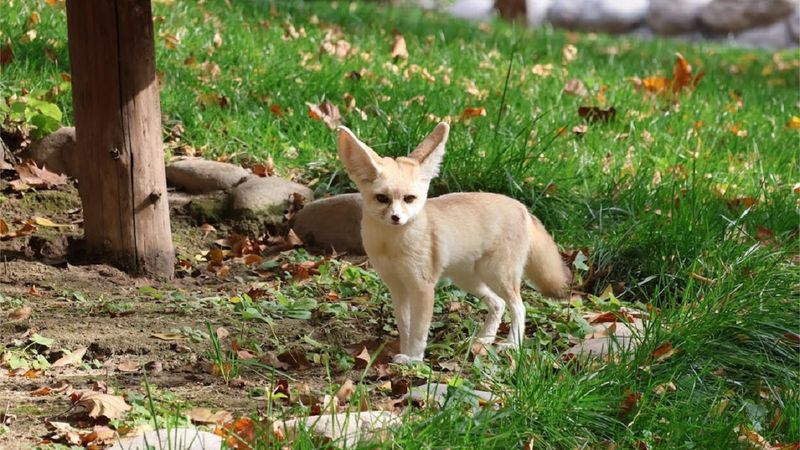
Fennec foxes, with their oversized ears and playful antics, are endearing but demanding pets. They require a large, secure outdoor enclosure to roam and dig. Their diet includes proteins and occasional fruits.
Regular interaction and stimulation are crucial to satisfy their social instincts. Though small, they need constant attention to thrive. Their nocturnal nature means they’re active at night, requiring an accommodating lifestyle.
11. Macaw
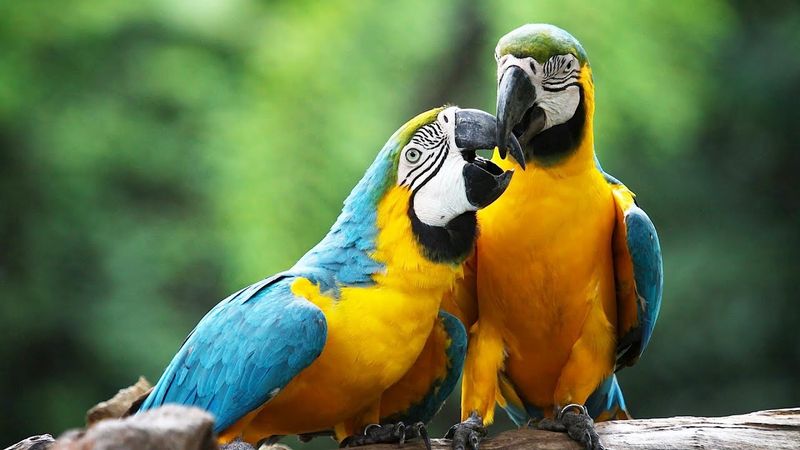
Macaws, with their vivid plumage and impressive intelligence, are captivating but require dedication. These parrots need a spacious aviary and toys to prevent boredom. A varied diet of seeds, fruits, and nuts is essential.
They thrive on social interaction and can mimic speech, making them entertaining companions. However, their long lifespan and need for daily attention make them a lifelong commitment.
12. Savannah Cat
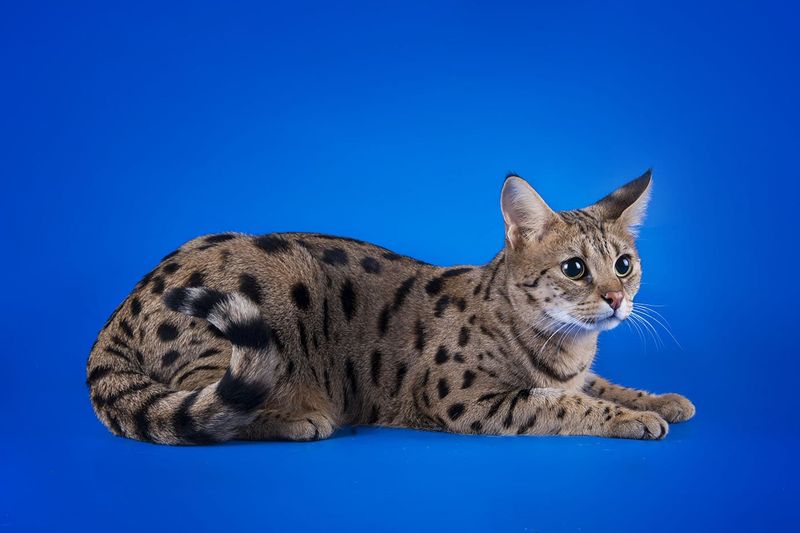
Savannah cats, with their wild looks and domestic temperament, are high-energy pets. They enjoy interactive play and require ample space to roam. Their diet should mimic a wild cat’s, rich in meat.
Savannahs bond closely with their owners, craving attention and mental stimulation. Their social nature means they thrive in a lively household. A mix of feline grace and untamed spirit, they demand a dedicated owner.
13. Ring-Tailed Lemur
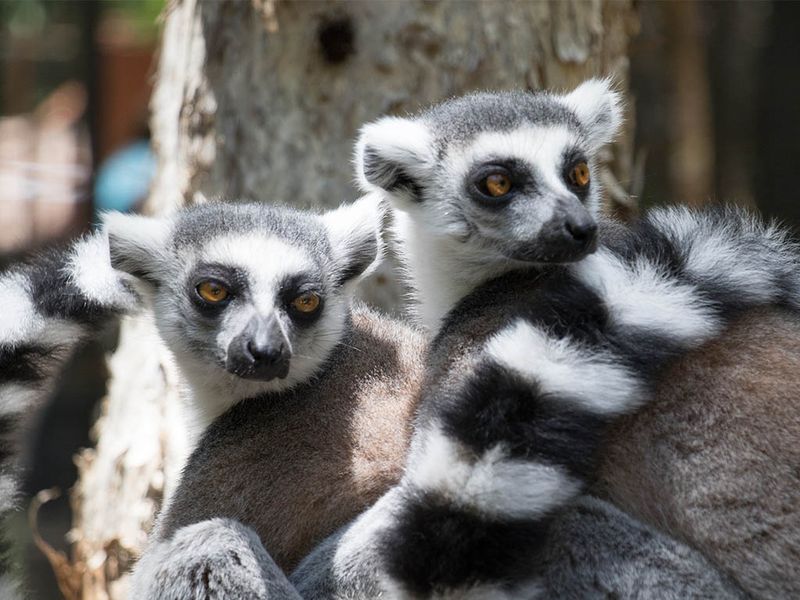
Ring-tailed lemurs, with their expressive eyes and striped tails, are social animals needing constant interaction. They require a spacious, enriched environment to explore. Their diet consists of fruits, vegetables, and insects.
Lemurs form strong group bonds and exhibit complex behaviors. Keeping them engaged is vital to prevent stress. While fascinating, they require dedicated care to mimic their natural habitat.
14. Green Iguana
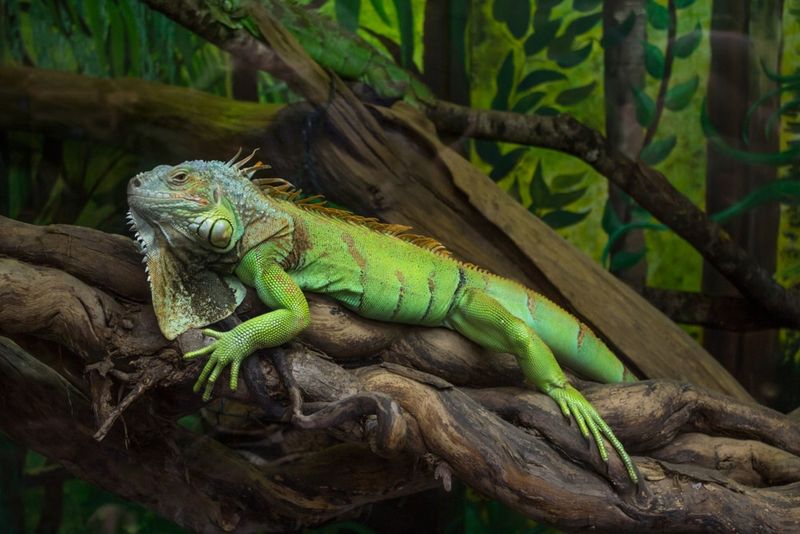
Green iguanas are striking reptiles needing large enclosures and specific diets. They thrive in warm, humid environments with plenty of climbing opportunities. Regular handling is essential to keep them tame.
Their herbivorous diet includes leafy greens and vegetables. Iguanas require careful attention to habitat conditions and diet to remain healthy. Their size and specialized care make them a challenging but rewarding pet.
15. Kinkajou
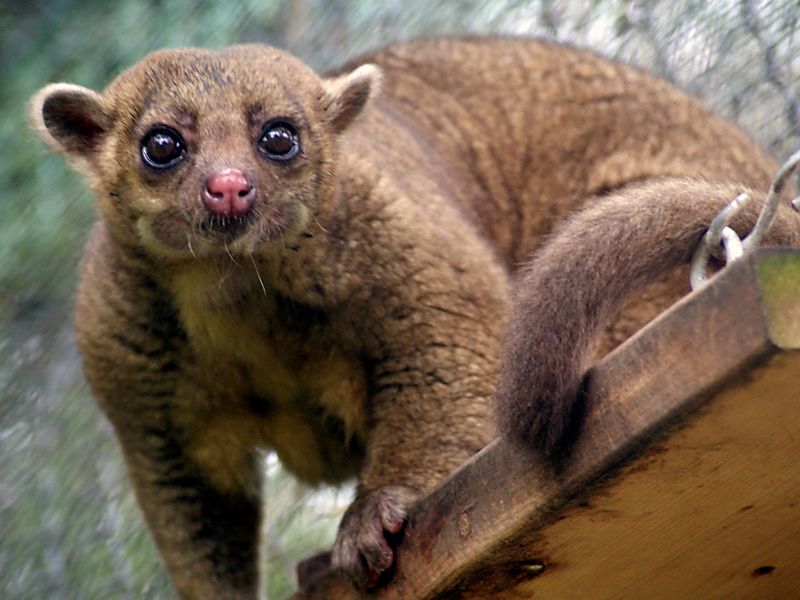
Kinkajous, with their playful nature and nocturnal habits, require constant enrichment. They need a diet rich in fruits and small mammals. Kinkajous thrive on interaction and exploring their environment.
Their curious nature means they get into everything, requiring a safe, enriching space. Though charming, they demand attention and commitment to prevent behavioral issues. They’re best suited for experienced exotic pet owners.
16. Chinchilla
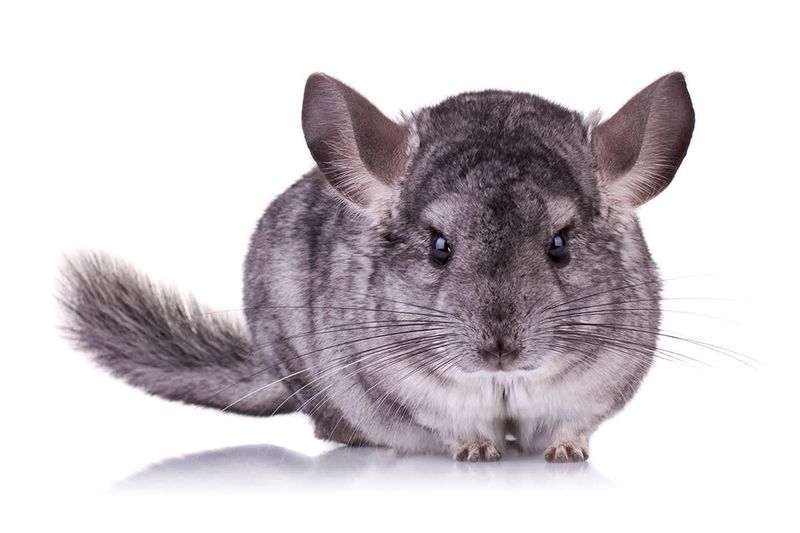
Chinchillas, with their irresistibly soft fur, are nocturnal creatures requiring a dust bath for grooming. They enjoy a calm, climate-controlled environment and nibble on hay and pellets. Chinchillas are social but prefer gentle handling.
Their active nature means they need exercises and chew toys to keep them occupied. While they don’t demand constant attention, they thrive in a well-managed environment that suits their unique needs.

